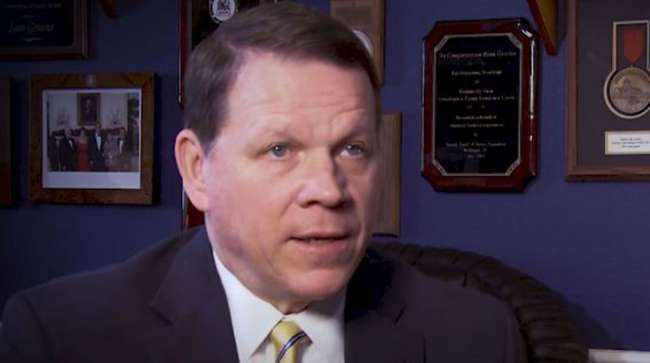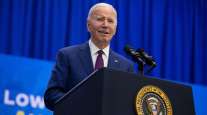Senior Reporter
House Transportation Leaders Sam Graves, Scott Perry Target FEMA Aid

[Stay on top of transportation news: Get TTNews in your inbox.]
House Transportation leaders are asking the Federal Emergency Management Agency for details related to assistance programs linked to the COVID-19 pandemic.
Pointing to the transportation committee’s oversight jurisdiction, Republican Reps. Sam Graves and Scott Perry focused on more than $110 billion related to FEMA’s disaster relief fund that was in response to COVID-19 emergency declarations.
Graves (R-Mo.) is the committee’s chairman, and Perry (R-Pa.) is chairman of the Economic Development, Public Buildings, and Emergency Management Subcommittee.
“In light of the billions of dollars distributed through the [disaster relief fund], we request information regarding FEMA’s accounting of these funds, and information regarding FEMA’s protocols to ensure taxpayer resources are not subject to waste, fraud or abuse,” the transportation policymakers wrote the agency Feb. 13. “We owe it to the American people to ensure DRF funds are appropriately and responsibly utilized.”

Perry
Specifically, the congressmen pressed FEMA Administrator Deanne Criswell to provide information “listing the total amount of administrative costs associated with activities and funding related to the COVID-19 declarations and indicate whether those administrative costs were covered with federal funds.”
Additionally, they are seeking a “document describing the timeline of obligations and expenditures by category allocated in response to the COVID-19 emergency declarations” from March 13, 2020, to Feb. 13, 2023.

Criswell
Graves and Perry set a Feb. 27 deadline for Criswell to respond to their requests.
The agency’s disaster relief fund is accessed for repair and restoration of certain disaster-damaged public infrastructure, hazard mitigation, financial assistance to certain disaster victims and to back fire management assistance grants. During the pandemic, the agency assisted with the recovery of freight-centric functions.
Under law, the agency is required to publish reports detailing disaster relief fund-related activities. The public report with a funding summary is delivered to congressional leaders. FEMA “can fund authorized federal disaster support activities as well as eligible state, territorial, tribal and local actions such as providing emergency protection and debris removal,” according to background information provided by the agency.
On Feb. 17, responding to a recent freight rail derailment in Ohio, FEMA regional administrator Thomas Sivak and Ohio Gov. Mike DeWine (R), said jointly: “FEMA will supplement federal efforts by deploying a senior response official along with a regional incident management assistance team (IMAT) to support ongoing operations, including incident coordination and ongoing assessments of potential long term recovery needs.”

DeWine
Examining FEMA’s funds aligns with Graves’ pledge to ramp up oversight of the Biden administration. House Republican leaders have indicated that policies specific to the House transportation panel’s jurisdiction, such as emergency relief efforts, supply chain connectivity, and transit and rail operations will be closely examined during the 118th Congress. Graves and his senior Republican colleagues intend to investigate senior administration officials, as well as review the implementation of the $1.2 trillion Infrastructure Investment and Jobs Act.
Republican policymakers are critical of the White House’s “fix-it-first” infrastructure guidance for transportation state agencies. A Federal Highway Administration memo outlining the guidance is central to the House GOP’s oversight agenda.
RM @RepRickLarsen: “@SecretaryPete’s upcoming trip to the site of the Ohio derailment will go a long way in ensuring the people of East Palestine and the surrounding communities know their leaders are doing everything possible to make the situation right.” https://t.co/9U8ncsQar3 — Committee on Transportation and Infrastructure (@TransportDems) February 22, 2023
Meanwhile, top Democrats on the panel point to potential economic and climate change benefits associated with the 2021 bipartisan infrastructure law. Rep. Rick Larsen (D-Wash.), ranking member on the transportation panel, recently called on colleagues to tout federal infrastructure investments targeting local projects. Larsen, speaking to The Hill newspaper this month, proposed that policymakers engage with constituents by “talking about these investments and directly connecting the passage of this law to the job creation that will be taking place in their districts.”
A new round of grants for safety programs from the U.S. Department of Transportation assisted projects in Washington state and around the country.
“We are proud that these grants will directly support hundreds of communities as they prepare steps that are proven to make roadways safer and save lives,” Transportation Secretary Pete Buttigieg said this month.
Want more news? Listen to today's daily briefing below or go here for more info:




